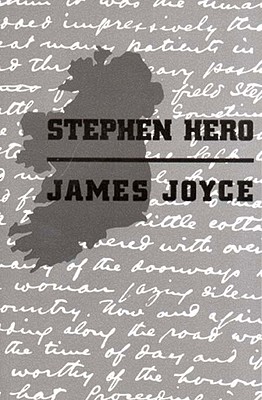APS TOGETHER
Day 7
Stephen Hero by James JoyceXXI, pp. 122-143
January 18, 2022 by Belinda McKeon
Stephen’s bond with Cranly (based on Joyce’s own college friend JF Byrne) is growing; the friendship as it develops in this chapter, set in late spring at the time of the college exams, has the air almost of a romance. Night after night, the two young men talk for hours in the library and walk arm-in-arm through the streets of Dublin, deep in conversation. Cranly even has a skill for dismantling Stephen’s monologues: he interjects with so many questions, of such a purposely basic nature, that Stephen sometimes just gives up.
One of Stephen’s monologues is about his sister, Isabel, who returned to live at home in the previous chapter and who is unwell. Stephen shows little concern for her; they are so different, with Isabel having “acquiessced in the religion of her mother,” that her life, if it continues, will be “a trembling walk before God,” in contrast to Stephen’s pompous march in the other direction. We see here the ruthlessness of Stephen’s project as he seeks to shape himself in line with his own ideal; he has no room for pity or compassion for others, not even his “wasting” younger sister: “he [has] first of all to save himself and…no business trying to save others unless his experiment with himself justifie[s] him.” Cranly takes him to task on this coldness, but Stephen resists. And in truth, despite their ease with each other, Stephen is fundamentally conscious of the difference between himself and Cranly. Stephen despises “the rabblement” (as did the Joyce of this era, the Joyce who wrote the polemic “The Day of the Rabblement,” scorning the Irish Literary Theatre). Cranly is part of the rabblement, or at least has a great number of companions who are of its number, and clearly enjoys this (from Stephen’s point of view) idiotic atmosphere, seeming to “please himself in the spectacle of this caricature of his own unreadiness.” In other words, he’s a messer, and if it weren’t for his enduring obedience to Catholicism, Stephen might believe him to be acceptably “corrupt.” Cranly is an invaluable presence in this chapter for the way in which he draws Stephen out in conversation, challenges him to elaborate on his own loss of faith, and provokes him into justifications of his rebellion against the church. “The Church is made by me and my like,” Stephen ultimately proclaims, “her services, legends, practices, paintings, music, traditions. These her artists gave her. They made her what she is.”
